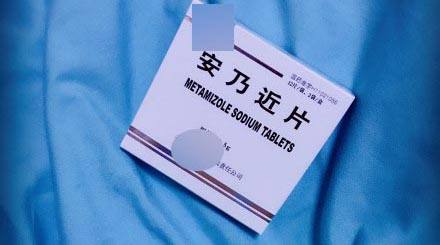
In the first few days, an editor of the editorial department gave a loud cry when he was tweeting:
[Oh, my God! Why do doctors prescribe this medicine to children? ]
We leaned over and had a look. It turned out that a mother complained that the doctor had prescribed analgin injection to the baby with fever.
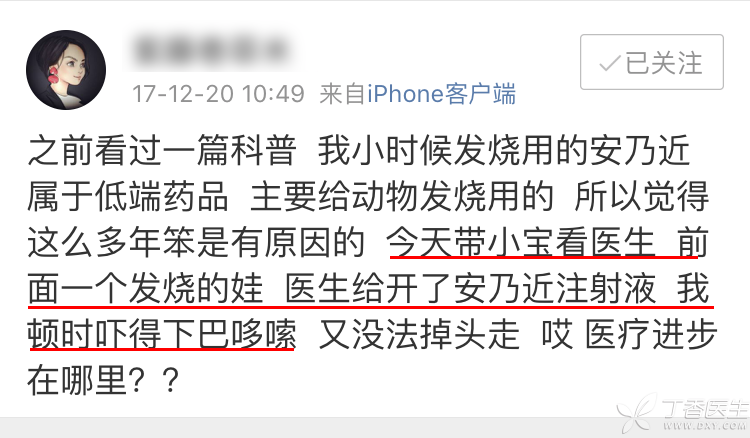
The mother still has certain identification ability. Knowing that Analgin is a what medicine, she was so scared that she almost wanted to turn around and walk away.
Everyone gasped uncontrollably.
Isn’t Analgin eliminated? Doctors with a little common sense all know that this antipyretic drug is not recommended for a long time. How can it be prescribed to children?
After searching the name of the medicine casually, all the negative news jumped out.

At first, we thought that the hospital that prescribed the medicine to this mother was in a remote township in what. When asked, we didn’t think it was the municipal hospital of traditional Chinese medicine in a prefecture-level city in Jiangsu province.
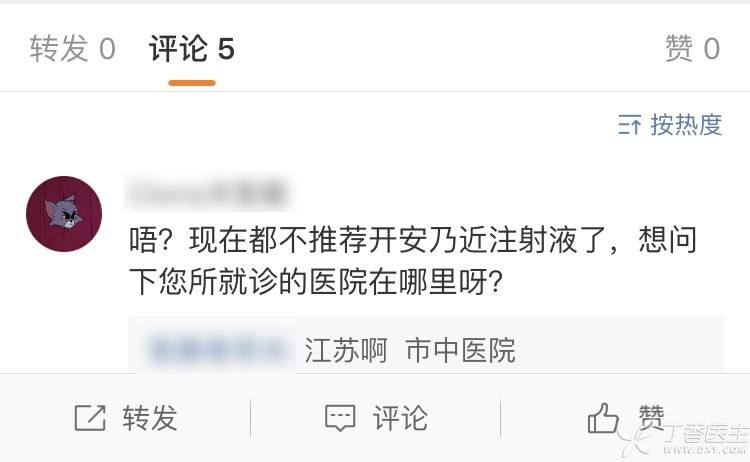
Later, we found that many mothers said that their children had been opened by the hospital because of fever.
Some children were given analgin injection:


Some children were given analgin noses:
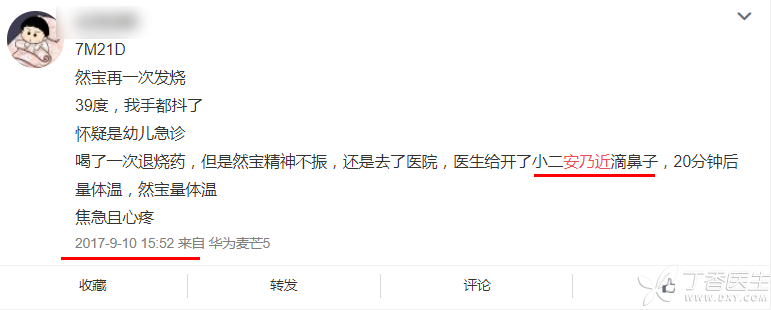

I thought Analgin had disappeared from the Jianghu for many years, but I didn’t think there were many more hospitals and doctors to open Analgin to children than we thought.
We invited pediatrician Liang Shijia to tell everyone why analgin must not be used to reduce fever.
The United States has banned it for 40 years and has been blacklisted by more than 30 countries.
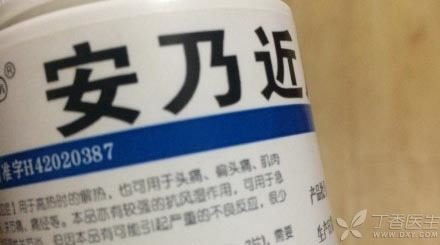
Since the 1920s, analgin has been used as an antipyretic. Because of its strong antipyretic and analgesic effects, analgin is widely used in clinical practice.
However, with the widespread use of analgin, more and more cases of serious side effects have occurred.
In the 1930s, Sweden had reported adverse reactions to analgin. Since then, some developed countries have banned analgin one after another.
In 1977, FDA removed all dosage forms of analgin from the market due to its serious side effects.
In this way, Analgin has been banned in the United States for 40 years.
Subsequently, more than 30 countries, including Japan, Australia, Iran and several EU member states, successively banned analgin.
It is embarrassing that drugs that have been banned in many countries for many years are still widely used in our country and are being eaten by adults and children.
Some township hospitals, health clinics and even 3A hospitals in prefecture-level cities still offer analgin to patients.
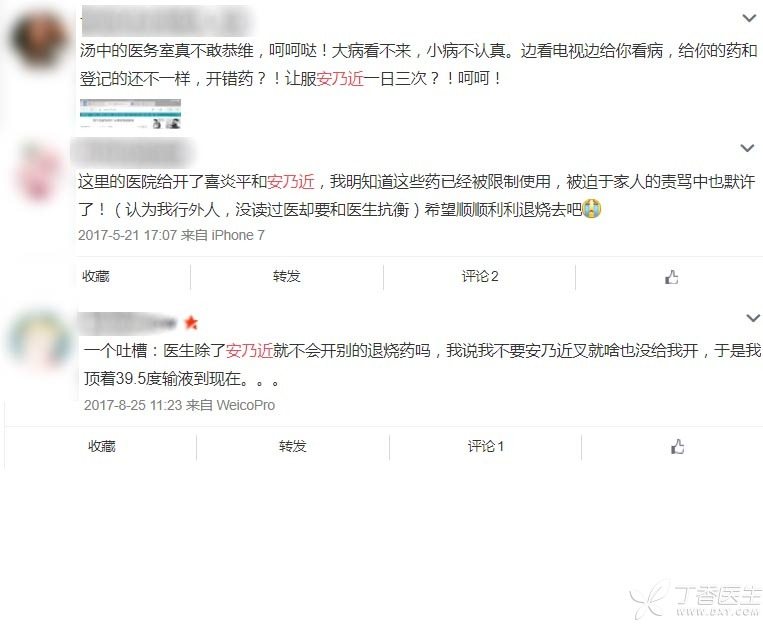
How big are the side effects of analgin?
As written in Analgin’s instructions, the probability of causing agranulocytosis is about 1.1%.
First, what is agranulocytopenia.
Granulocytes are a kind of white blood cells. When bacteria invade the baby’s body, granulocytes are a barrier to protect the baby’s body from injury.
Granulocytosis will greatly reduce the baby’s immunity and increase the probability of infection. For example, a common small cold or bronchopneumonia may bring irreparable damage to the child.
What is the concept of the 1.1% incidence rate?
This is equivalent to [one in 100 people taking analgin may develop agranulocytosis], which is a very high proportion in terms of probability.
In addition, there are a series of side effects of taking analgin, each of which is very frightening just by looking at the name:
Thrombocytopenic purpura;
Autoimmune hemolysis;
Aplastic anemia;
Urinary system damage;
…….
Risk of death from taking analgin
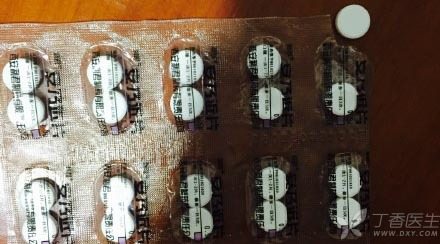
In addition to the side effects mentioned above, in terms of skin diseases, taking analgin may also cause allergic symptoms such as urticaria and exudative erythema, and in serious cases, anaphylactic shock and even death.
If you haven’t realized the seriousness of the side effects of analgin, you can look at the data on analgin side effects released by the National Adverse Drug Reaction Monitoring Center:
There were 11 cases of anaphylactic shock, of which 7 died.
16 cases of blood system reaction and 1 case died.
There were 31 cases of skin and its appendages reaction and 4 cases died.
Urinary system reaction occurred in 17 cases and 5 cases died.
…….
The above does not include adverse reaction cases collected by various local monitoring centers.
The National Adverse Drug Reaction Monitoring Center has also provided a typical case of such adverse reactions, which makes people sad:
A 12-year-old girl, who took analgin orally due to upper respiratory infection, was hospitalized for general malaise after taking 8 tablets in a row. A week later, the little girl died and was diagnosed with acute aplastic anemia.

Photo Source: National Adverse Drug Reaction Monitoring Center
Such tragedies could have been avoided.
These are the only two safe and effective antipyretics for children.
If the doctor insists on prescribing analgin to reduce fever for the child, what should parents do?
The answer is very simple-refuse directly and ask the doctor to change the following two drugs for the child to reduce fever:
[acetaminophen] and [ibuprofen].
At present, the World Health Organization (WHO) recommends only these two antipyretics for children around the world.
Acetaminophen can be used for babies over 2-3 months old and ibuprofen can be used for babies over 6 months old.
Moreover, as long as these two drugs are taken in dosage, the side effects on children are very, very small.
Why are domestic doctors still prescribing analgin?
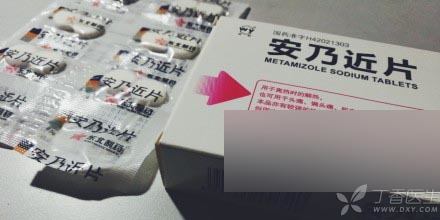
In fact, as early as 1982, China’s Ministry of Health listed compound analgin tablets as obsolete drugs.
Interestingly, 35 years have passed and Analgin tablets, drops and injections are still in use and even prescribed to children.
Don’t doctors who prescribe analgin to children know that analgin has such terrible side effects?
It is really possible.
Doctors at the grass-roots level update their knowledge slowly and do not pay attention to the adverse reactions of analgin, let alone the reports of adverse reactions of analgin.
According to their own experience, they believe that analgin injection has obvious antipyretic and analgesic effects, and regard analgin injection as the first choice for reducing fever.
Because doctors continue to prescribe drugs and do not explain the side effects to patients, most people only see the fast antipyretic side of analgin, but know nothing about the side effects of analgin.
All we know is that we have a fever and take a piece of analgin. Have a headache, take another tablet of analgin.
As a result, many people who do not know Analgin [black history] eat Analgin once and Amway once…….
Analgin is indeed a good medicine for fever reduction in an era when the medical foundation is weak, but if we have better and safer drugs to replace it, why take great risks to achieve the effect of rapid fever reduction?
When doctors prescribe Chinese patent medicines that have no efficacy, we will take them as placebos.
When doctors often prescribe antibiotics, we recognize them if we don’t understand medicine.
But when doctors prescribe analgin to our children, which should have been eliminated long ago, we must refuse.
Some people may say that the medical standards vary greatly from place to place in the country. You cannot require all doctors to update their knowledge at any time to achieve full marks. It is their helpless choice to prescribe analgin.
But in fact, not prescribing analgin to children is only a [passing] requirement for a doctor or a hospital.
